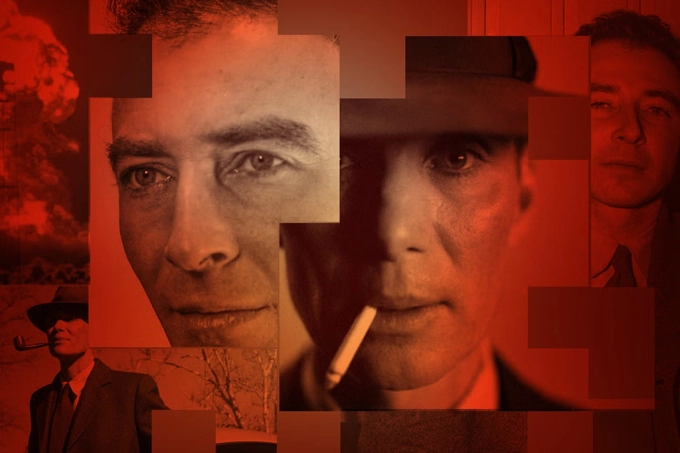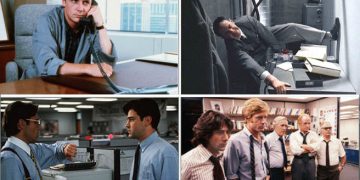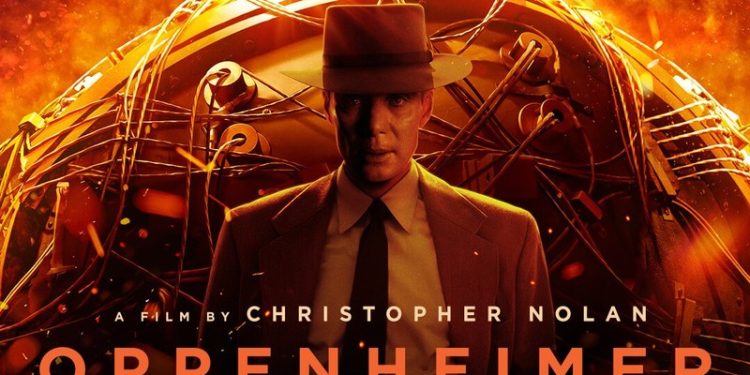Nolan’s “Oppenheimer” reaches $718 million USD after five weeks of screening due to its compelling script about the controversial life of the scientist during World War II.
- The article reveals the film’s content
Christopher Nolan’s “Oppenheimer” had a budget of $100 million USD and has been praised by critics as one of the best films of the year. According to Variety, the film has surpassed Steven Spielberg’s “Saving Private Ryan” (1998) to become the second-highest-grossing World War II film of all time.
The Threat of nuclear weapons and war has always been a hot topic in artistic creations. Most works on this subject tend to depict the pain and loss of the victims. However, Nolan focuses on portraying the actions and complex inner emotions of Oppenheimer (played by Cillian Murphy) – the “father” of the atomic bomb. As per MovieWeb, Nolan demonstrates that he can create a film with a simple plot while still generating a compelling narrative that makes the audience reflect.

Oppenheimer carries the obsession to “change” the world. During World War II, alongside the arms race among superpowers, there was also a covert competition among numerous scientists. In Germany, Werner Heisenberg, the founder of quantum mechanics theory and Nobel Physics laureate in 1932, was attempting to create an atomic bomb. Meanwhile, American scientists aimed to surpass the Germans in developing this technology. Oppenheimer, of Jewish descent, had significant reasons for succeeding in creating the atomic bomb. He wanted to combat the anti-Semitic ideologies of Nazi Germany.
MovieWeb notes that Nolan meticulously crafted every detail of the screenplay. The film balances Oppenheimer’s internal struggle and the consequences arising from his groundbreaking scientific leap. The film’s theme aims at the general public, as it sheds light on Oppenheimer’s era to reflect on the present. Although the film doesn’t directly depict the bombings of Hiroshima and Nagasaki (Japan), the director finds ways to create segments that reflect Oppenheimer’s feelings of guilt.

Nolan also portrays the American political era through the Atomic Energy Commission hearings on the revocation of Oppenheimer’s security clearance. According to Insider, security clearance is a permit to access highly classified data, restricted information, and national security information held by the U.S. Department of Energy. While in effect, anyone who is granted clearance holds a key position in security, equivalent to a Top Secret clearance by the U.S. Department of Defense.
One of the elements creating tension in the film is the two hearings of Oppenheimer and Lewis Strauss (played by Robert Downey Jr.). While Oppenheimer defends himself against the prosecutor’s questions to retain his security clearance, Strauss aims to prevent the influence of his colleague and gain control over atomic weapons while also seeking revenge against Oppenheimer.
Nolan adds to the dramatic tension of these confrontational scenes by alternating between past and present, posing a series of questions that delve into Oppenheimer’s life and relationships. From this approach, the audience can grasp significant events and gain insight into the character’s mindset.
The director also adds complexity by telling the story from two perspectives. Scenes with color represent Oppenheimer’s viewpoint, while black and white scenes show the perspective of the audience or other characters.
Nolan limits the use of visual effects, believing that CGI cannot fully replicate the experiment’s danger and the impact of the atomic bomb. The team conducted numerous experiments before recreating the nuclear test scenes on set, ensuring the highest level of authenticity for those scenes.

Cillian Murphy’s performance leaves a lasting impression on the audience. The Irish actor brings a range of emotions to Oppenheimer, from youthful enthusiasm for dedicating his life to science to hidden pain and inner torment throughout various stages of his life.
Murphy made efforts to lose weight for the role over six months, eating only one almond per day, as reported by Insider. “I operated at a kind of crazy energy. I pushed through limits without worrying about food or anything else. I was in an almost supernatural state, but it’s good because my character is like that. He doesn’t eat,” the actor stated.
Experts acknowledge Murphy’s dedication to his role. Deadline praises Murphy’s capture of all the contradictions within the scientist’s soul. Adam Nayman of The Ringer praised Oppenheimer’s role as a “perfect performance.” Peter Bradshaw of The Guardian remarked that the actor’s demeanor, voice, and appearance closely resemble the original. “Murphy’s performance authentically portrays a theoretical physicist with a complex personality, even more impressively than the content of the book ‘American Prometheus,’ which inspired Nolan,” the publication wrote.
Collider suggests that Nolan’s reputation contributes to the film’s allure. He is one of the few filmmakers who can draw audiences to theaters regardless of the content. Nolan’s works have doubled the box office revenue of his colleague Quentin Tarantino, with notable films like “Inception” (2010) earning $837 million USD and “Interstellar” (2014) around $715 million USD. Two Batman films directed by Nolan, “The Dark Knight” (2008) and “The Dark Knight Rises” (2012), surpassed the billion-dollar mark globally.































